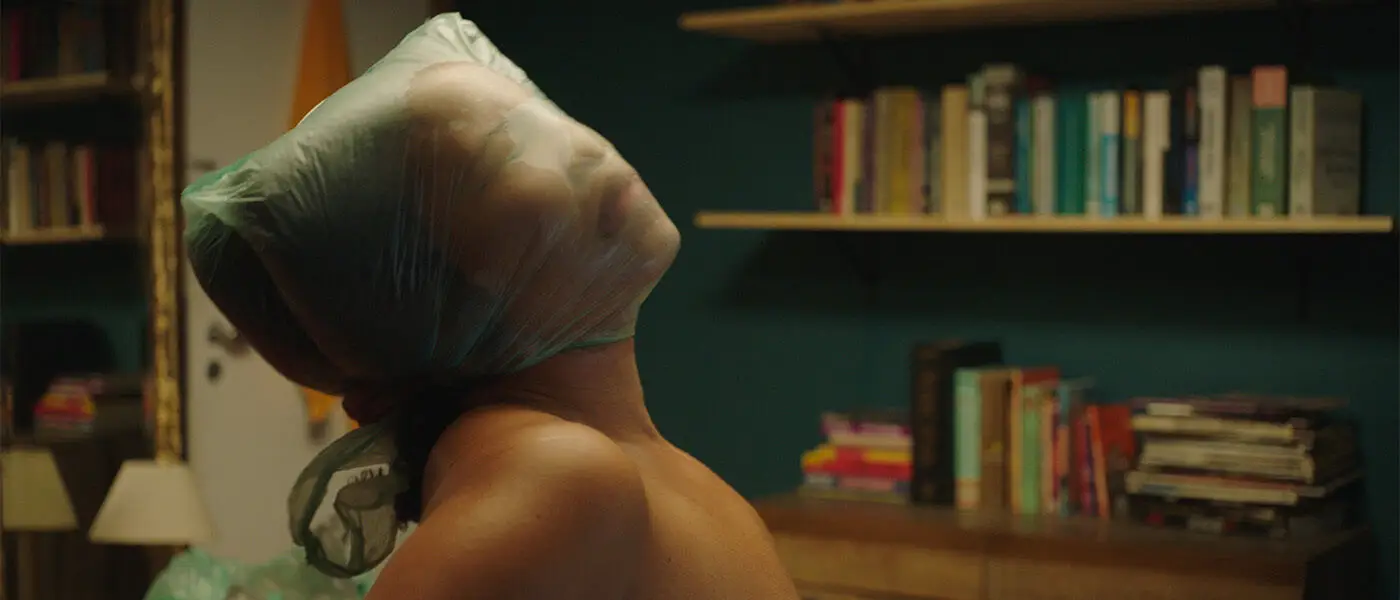Seksuaalisuuden esittäminen on aina ollut elokuvataiteen ydintä. Mutta miten kuvata seksuaalisuutta 2020-luvulla, #MeToo-kampanjan jälkeisessä ajassa? Kuinka löytää tilaa ristiriidoille ja hankauksille mieskatseen ja sen vastakatseiden, representaatiokeskustelun ja voimaannuttamiseen pyrkivän seksipositiivisuuden hetteikössä? Nykyajan suuren tuotannon elokuvissa lihakset sen kuin kasvavat ja kehot kaunistuvat, mutta seksi puuttuu, kuten RS Benedict toteaa esseessään.
Espoo Cinén Hankalat halut -teemassa esiin nostetaan elokuvia, jotka eivät häveliäästi käännä katsettaan pois haluavasta ihmisestä. Sen sijaan seksuaalisuutta tutkaillaan uteliaasti ja pikatuomioita jakelematta. Teeman elokuvissa tehdään vääriä valintoja, voimaannutaan ja ei-voimaannuta sekä käsitellään ajoittain rankkojakin aiheita. Ote on kuitenkin taide-elokuvalle tyypillisen pohdiskeleva, eivätkä elokuvat teemoistaan huolimatta tähtää rajuuteen tai shokeeraavuuteen. Osa teoksista käsittelee seksuaalisuuden häiriöitä, osa omien rajojen etsimistä ja koettelua.
Teemakokonaisuus koostuu paneelikeskustelusta ja 12 elokuvasta. Kaikkiin teeman elokuviin voi tutustua täällä.
Risteileviä haluja, raikasta otetta ja rajojen etsimistä
Teeman elokuvissa halua ja haluamista lähestytään monesta suunnasta, varovaisesti, estoitta ja läähättäen. Júlia Muratin Locarnon elokuvajuhlilla Kultasen leopardin voittanut Rule 34 tuo katsojan eteen seksityöllä itsensä elättävän oikeustieteen opiskelijan Simonen (Sol Miranda). Opinnoissaan Simone keskittyy lähisuhdeväkivaltaa kokeneiden naisten puolustamiseen, mutta opintojensa ulkopuolella erotiikan ja väkivallan värittämä BDSM-maailma houkuttelee naista menemään yhä pidemmälle.
Fernando Francon elokuvassa The Rite of Spring uskonnollisesta perheestä tulevan Lauran ja cp-vammaisen Davidin välille syntyy odottamaton suhde. Valentina MaurelinI Have Electric Dreams -elokuvassa 16-vuotias Eva puolestaan marssii päättäväisesti kohti aikuisten maailmaa, jossa vastaan tulevat päihteet, seksi ja ihmispsyyken hämmentävä mutkikkuus. Samalla Evan hulttioisä käy läpi toista murrosikäänsä ja etsii epätoivoisesti hyväksyntää itselleen ja taiteelleen.
Nuorten elokuvantekijöiden tuotantoa esittelevä Hotelli-lyhytelokuvat tarttuu puolestaan aiheeseensa raikkaan kekseliäällä otteella. Kahdeksan lyhytelokuvan sarjassa näkyviin tulee kokonainen seksuaalisuuden kimara.
Lisäksi teeman elokuvissa kasvatetaan hevosenhäntä ja nautitaan kesytetyksi tulemisesta (kuten käy Ann Orenin elokuvassa Piaffe), joudutaan epämiellyttävällä tavalla kohtaamaan omat tukahdetut tunteet ja halut (kuten Ulrich Seidlin Spartassa), ollaan vastakkain sisäisten hirviöiden kanssa (kuten Carlos VermutinManticore-elokuvan päähenkilö Julián) sekä paljon muuta!
Hankalat halut -paneelikeskustelu
Miten seksuaalisuutta ristiriitaisuuksineen ja jännitteineen kuvataan nykyelokuvassa? Mikä on draaman, hankaluuden ja hankauksen tila kulttuurissa, jossa on yhä suurempi tarve pikemminkin voimauttavalle, korjaavalle ja juhlivalle seksuaalisuuden esittämiselle? Vai onko halun kuvaaminen itsessään yhä hankalampi pähkinä purtavaksi?
Seksuaalisuuden kuvaamisen riemuja ja karikoita paneelikeskustelussa ruotivat ruotsalainen dokumentaristi Mia Engberg (Belleville-trilogia, Dirty Diaries), ohjaaja Anna Paavilainen (Kikka!, Play Rape, Kaksi ruumista rannalla) sekä mediatutkija ja sukupuolentutkimuksen professori Anu Koivunen (Turun yliopisto). Keskustelun moderoi elokuvaesseisti ja Espoo Cinén hallituksen jäsen Tytti Rantanen. Keskustelu järjestetään englanniksi.
Paneelikeskustelun jälkeen paikalla esiintyy haluista ja hankaluuksista rap-musiikkia loihtiva Draama-Helmi. Muusikko palkittiin aikaisemmin tänä vuonna Teosto-palkinnolla albumistaan Draama-Helmi kuistilla.
Paneelikeskustelu ja sitä seuraava keikka järjestetään lauantaina 19.8. klo 18–19.30 Kino Tapiolan terassilla. Tilaisuuteen on vapaa pääsy.
